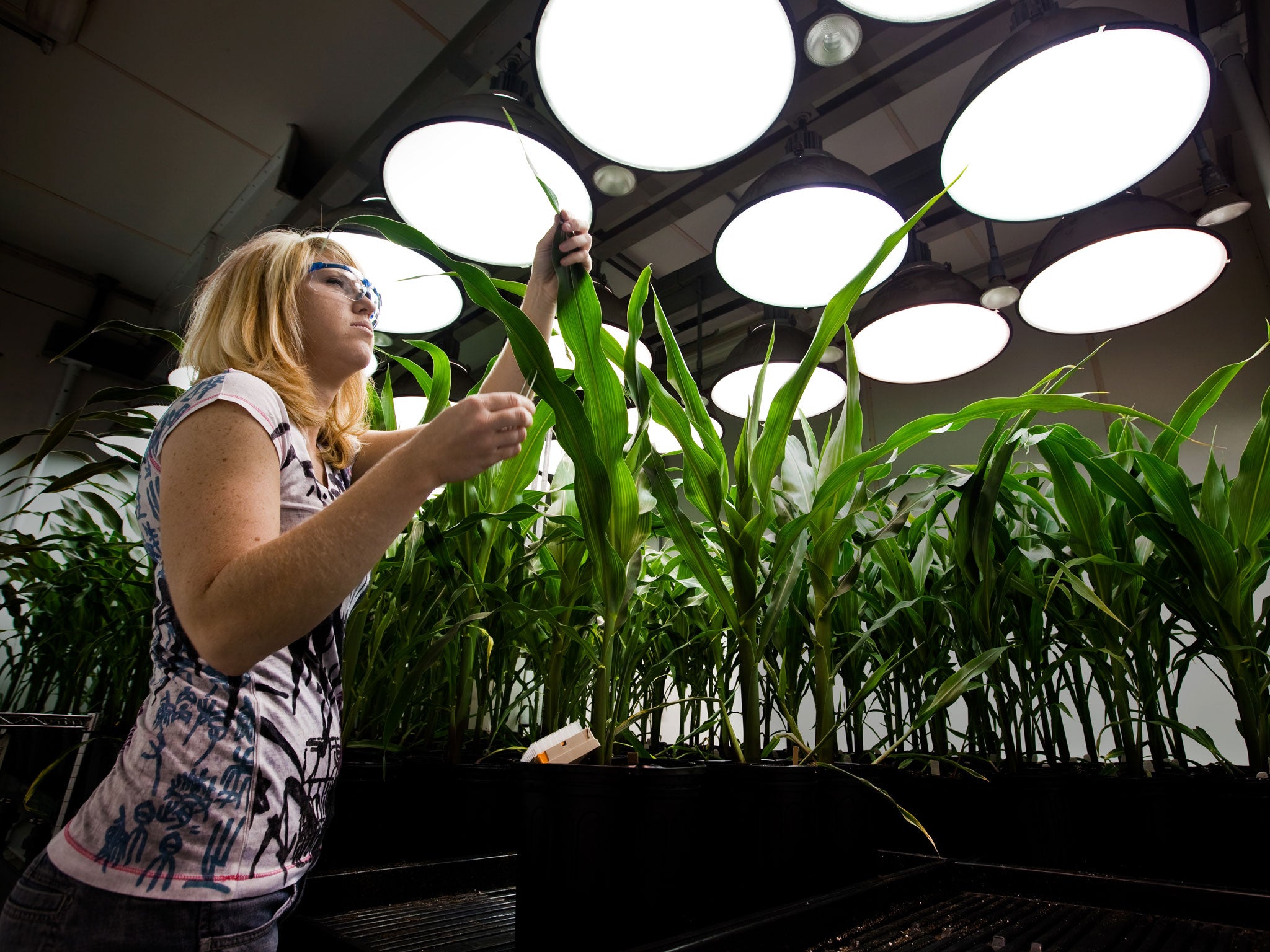GM crops? It's business, as usual
The hungry and their planet trail behind profit


Your support helps us to tell the story
From reproductive rights to climate change to Big Tech, The Independent is on the ground when the story is developing. Whether it's investigating the financials of Elon Musk's pro-Trump PAC or producing our latest documentary, 'The A Word', which shines a light on the American women fighting for reproductive rights, we know how important it is to parse out the facts from the messaging.
At such a critical moment in US history, we need reporters on the ground. Your donation allows us to keep sending journalists to speak to both sides of the story.
The Independent is trusted by Americans across the entire political spectrum. And unlike many other quality news outlets, we choose not to lock Americans out of our reporting and analysis with paywalls. We believe quality journalism should be available to everyone, paid for by those who can afford it.
Your support makes all the difference.The Environment Secretary, Owen Paterson, is expected to set out in a speech this week plans to press the EU to relax restrictions on growing genetically modified crop varieties. But while his move is predictable, it is not rational.
Although GM crops are presented by ministers as a means to achieve more sustainable food production, and as environmentally beneficial, sweeping claims like this have repeatedly been revealed as either massive over-claims or nonsense. Take broad-spectrum herbicides, which kill all plants but the crop varieties modified to resist the chemicals. With all wild plants killed off, animals disappear too. If such crops were planted on a large scale, the countryside would become even more sterile than it is now.
Chemicals that are used to kill wild plants will find their way into watercourses and affect soil organisms. As there really is nothing more fundamental for continued human well-being than water and soil, all means to protect these systems from abuse should be adopted by societies, especially in relation to agricultural systems.
In the face of environmental concerns, GM crop advocates generally come back with their favourite, and most flawed, argument: that GM crops will feed the world. They point to continuing malnutrition, rising population and demand for more land and claim that more technology is the answer. Leaving aside the extent to which GM crops will raise yields (experience tells us that this is often not the case), we need to question the basic premise that we are short of land or food.
The UN's Food and Agriculture Organisation estimates that the world wastes about $750bn worth of food each year, a figure that is about six times global development aid. With a third to a half of food lost, it is clear that the world has not yet registered a sense of food or land shortage. The reasons for food waste vary. Consumers are more important in richer countries, while the lack of storage and transportation are key factors in developing countries. The biggest and quickest thing that could be done to help improve food security in developing countries would be to invest in better storage and refrigeration and in the infrastructure to get food to market before it spoils.
As for yields, experts have pointed out that the best way to improve overall output would be to train farmers, provide them with better varieties, help them with market access, and invest in improved soil fertility and rainwater storage. All this would sustain rural jobs and raise farmer incomes, rather than putting them out of work or into debt on the back of expensive seed and chemical sales.
While I am not against GM crops in principle I have concluded that, in most cases, the alternatives are better – for the environment, food security and farmers. This position is not anti-science, nor is it anti-technology; it is about solving problems in ways that have a chance of working in our complex world.
So why press ahead with this further attempt to promote GM crops? For me the answer lies not in moves to improve food security, environmental quality or consumer benefits, but in the business model of the big agro-chemical companies.
For the big firms pushing GM crops this is all about patents, seed royalties and chemical sales. As with the British government's campaign to keep bee-killing neonicotinoid pesticides in use, the policy was not about protecting our collective environment but about conserving the private profit of major companies.
Tony Juniper's new book, What has Nature Ever Done for Us?, is published by Profile Books; tonyjuniper.com; @tonyjuniper
Join our commenting forum
Join thought-provoking conversations, follow other Independent readers and see their replies
Comments